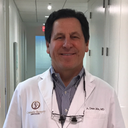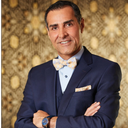Posted underFacelift q&a
atlanta100Dec 24, 2017
Answers (6)
From board-certified doctors and trusted medical professionals
Dr. P. Daniel Ward, MD

PM
Dr. P. Daniel Ward, MD
Board Certified Otolaryngologist
Answer
Dr. Kenneth D. Steinsapir, MD

KM
Dr. Kenneth D. Steinsapir, MD
Oculoplastic Surgeon, Board Certified in Ophthalmology
Answer
Dr. Anup Patel, MD, MBA, FACS
AF
Dr. Anup Patel, MD, MBA, FACS
Board Certified Plastic Surgeon
Answer
Dr. Raghu Athre, MD
RM
Dr. Raghu Athre, MD
Board Certified Facial Plastic Surgeon
Answer
Dr. Richard O. Gregory, MD
RM
Dr. Richard O. Gregory, MD
Board Certified Plastic Surgeon
Answer
Dr. Robert Brueck, MD
RM
Dr. Robert Brueck, MD
Board Certified Plastic Surgeon
Answer
More Facelift Questions
See all Facelift Q&A
WE SEND PRETTY
EMAILS
What’s trending? Who’s turning heads? Which TikTok myths need busting? We’ve got you. No fluff, no gatekeeping—just real talk. Get our free, unfiltered newsletter.




